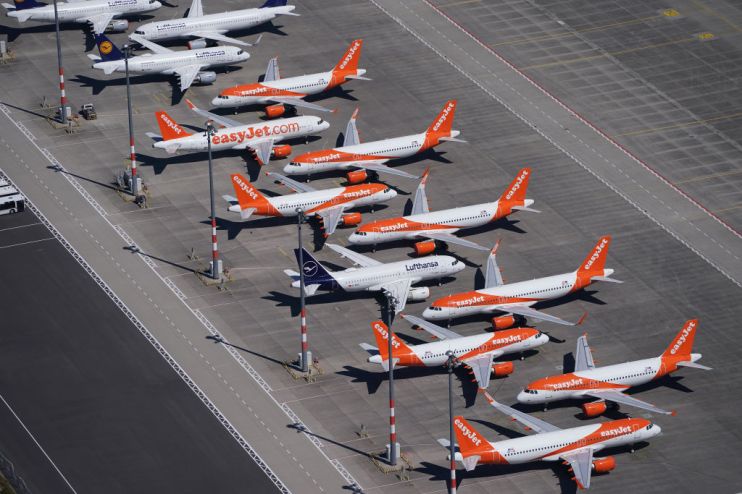Easyjet mulls over compensation following airports’ caps

Easyjet is mulling over compensation after airports around Europe introduced daily passenger caps to cope with the ongoing travel chaos.
Chief executive Johan Lundgren told journalists it was “clearly something that we will be discussing individually with our partner operators” but refused to lay out further details.
Airports where Easyjet operates such as Gatwick and Amsterdam’s Schiphol were forced earlier this summer to cut services in a bid to avoid more delays and disruption for passengers.
The West Sussex hub was forced to cut daily flights from an average of more than 900 to 825 and 850 in July and August respectively.
Meanwhile, the Dutch airport cut daily July passengers to 67,500, ramping up numbers to 72,500 for August. Heathrow also caused a stir when it capped the daily number of departing passengers to 100,000.
Aviation analyst Sally Gethin told City A.M. Easyjet potentially asking for compensation could be a “risky move,” as the UK Government has called for cooperation between all parties.
“So for Easyjet to seek financial redress from Gatwick Airport could be seen as confrontational and uncooperative and contradictory to regulatory and government policy,” she said.
“It would also set a precedent in Europe triggering potential compensation claims at Heathrow and Amsterdam Schiphol by other airlines.”
In the three months ended 30 June, Easyjet posted a loss of £133m as a result of the recent travel disruption.
The low-cost airline had a pre-tax loss of £114m due to the impact of cancellations, but its EBITDAR was a profit of £103m, down 67 per cent on 2019 levels.
The chief executive blamed it on “the unprecedented ramp up across the aviation industry, coupled with a tight labour market.”
Lundgren added that EU-wide labour shortages were heightened by post-Brexit immigration regulations.
“The level of people the industry is recruiting has become smaller partly because we don’t have the same amount of EU nationals available [and that] it’s a big difference,” he said.
“[Labour shortages] are not unique to the UK, I just think the issues here are bigger than they are across Europe.”
To fix the situation, the aviation executive said, industry stakeholders should stop pointing the finger at one another.
“It’s pretty pointless to start pointing the finger across the whole ecosystem,” Lundgren added. “There is no one across the aviation industry who didn’t feel the pressure.”